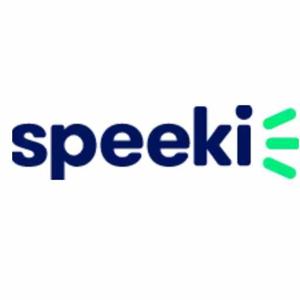
In the evolving landscape of corporate sustainability, the International Financial Reporting Standards (IFRS) S1 and S2 are playing a pivotal role in shaping the sustainability-related disclosures standard. These standards provide a comprehensive disclosure standard that ensures organisations report sustainability efforts in a clear, consistent, and reliable manner. With growing expectations from investors and stakeholders for transparent and accurate sustainability data, IFRS S1 and S2 serve as crucial guidelines in improving corporate sustainability disclosures and enhancing transparency in global markets.
Understanding IFRS S1: General Requirements for Sustainability-Related Disclosures
IFRS S1, titled “General Requirements for Disclosure of Sustainability-related Financial Information”, provides the foundational framework for sustainability disclosures. This standard is designed to ensure that organisations disclose material information on sustainability-related disclosures standard on risks and opportunities that could impact their financial position, cash flow, or access to capital over the short, medium, and long terms.
Under IFRS S1, companies are required to provide disclosures across four key content areas: governance, strategy, risk management, and metrics and targets. This structure aligns with the recommendations of the Task Force on Climate-related Financial Disclosures (TCFD), offering consistency for stakeholders when comparing sustainability data across different companies and sectors. By adhering to this standard, organisations provide their stakeholders with a clear understanding of how sustainability risks and opportunities influence their operations, strategy, and overall financial performance.
Exploring IFRS S2: Climate-Related Disclosures
IFRS S2 builds on the foundation of IFRS S1 but focuses specifically on climate-related disclosures. This standard requires companies to provide detailed information about the risks and opportunities that arise from climate change, as well as the impact these factors may have on the company’s financial performance.
The key disclosures under IFRS S2 include information about the company's exposure to climate-related risks (both physical and transition risks) and how these risks are managed. Companies must also disclose the strategies they have implemented to address climate change and their performance against climate-related metrics. This includes information on emissions, energy usage, and how they are working towards reducing their carbon footprint. The goal is to provide stakeholders with relevant and reliable information to assess how climate change may impact the company’s long-term viability.
Integration with Existing Frameworks
IFRS S1 and S2 are not standalone standards. They are designed to integrate with existing sustainability reporting frameworks, such as the TCFD and the Sustainability Accounting Standards Board (SASB) standards. This alignment helps create a more standardised and cohesive approach to sustainability reporting, making it easier for organisations to navigate the reporting landscape and for stakeholders to compare sustainability performance across industries.
The integration of sustainability-related disclosures standards with established frameworks reduces the burden of additional reporting requirements for companies that are already engaged in sustainability reporting. It also helps streamline the process, making it more efficient and ensuring that organisations disclose information that is both relevant and consistent across different jurisdictions.
Proportionality and Flexibility in Application
One of the key features of IFRS S1 and S2 is the principle of proportionality. Recognising that organisations vary in size, complexity, and resources, the IFRS standards are designed to be flexible in their application. This ensures that even smaller companies, or those with limited reporting capacity, can still adhere to the standards without facing undue burden.
For example, companies may be allowed to provide qualitative disclosures in certain areas when quantitative data is not readily available. This flexibility ensures that the standards are applicable across a wide range of organisations, regardless of their reporting experience or size.
The Importance of Corporate Reporting: Benefits of Adopting IFRS S1 and S2
The adoption of IFRS S1 and S2 brings several benefits to companies. One of the key advantages is the improvement in stakeholder trust. As sustainability becomes a critical consideration for investors, customers, and other stakeholders, transparent and comprehensive reporting on sustainability performance helps companies build credibility and strengthen their relationships with key stakeholders.
Additionally, the use of these reporting standards helps organisations better understand and manage sustainability-related risks. With clear guidance on how to identify and disclose these risks, companies are better equipped to integrate sustainability into their strategic decision-making. This not only enhances the long-term value of the company but also helps companies mitigate risks that could affect their financial stability.
Moreover, increased transparency in sustainability-related disclosures standard reporting can open doors to new sources of capital. Investors are increasingly looking for companies that demonstrate strong environmental, social, and governance (ESG) practices. By adhering to IFRS S1 and S2, organisations can show their commitment to sustainability and attract investment from ESG-conscious investors.
Conclusion: Shaping the Future of Sustainability Disclosures
The introduction of IFRS S1 and S2 marks a significant step forward in the evolution of corporate sustainability reporting. These standards provide a robust and flexible framework that enables organisations to disclose material sustainability-related information in a transparent, consistent, and comparable manner. As sustainability continues to gain prominence in the global business landscape, IFRS S1 and S2 will play a critical role in helping organisations align their reporting practices with the growing demand for reliable, decision-useful sustainability data.
For companies that have yet to implement these standards, now is the time to start preparing. Embracing IFRS S1 and S2 not only ensures compliance but also positions organisations for long-term success in an increasingly sustainability-focused business environment.













Write a comment ...